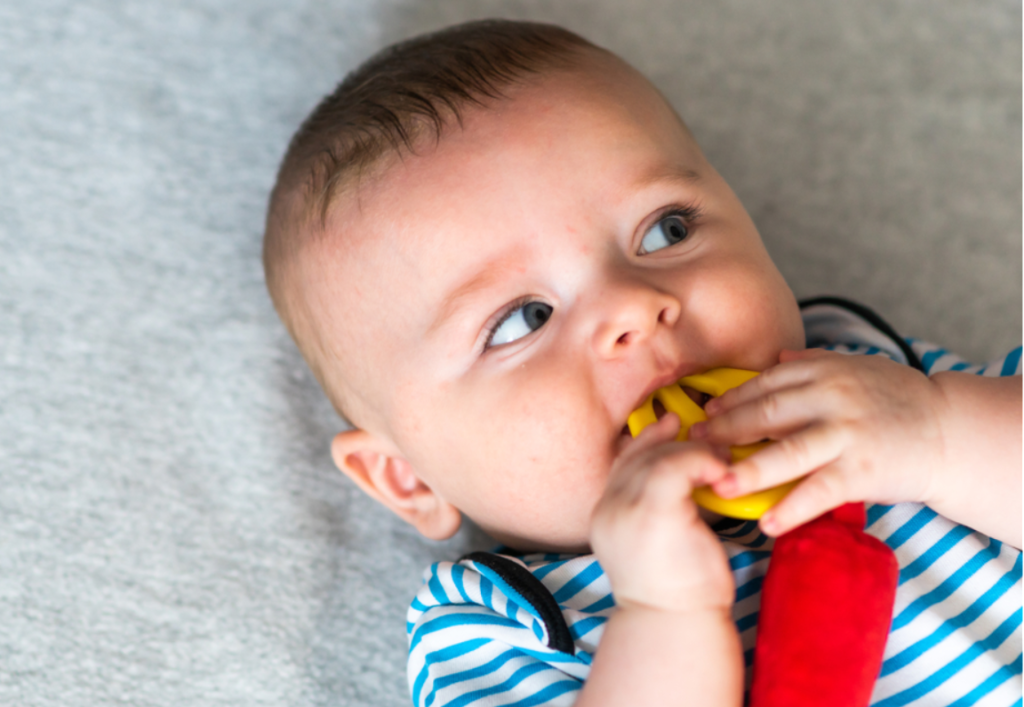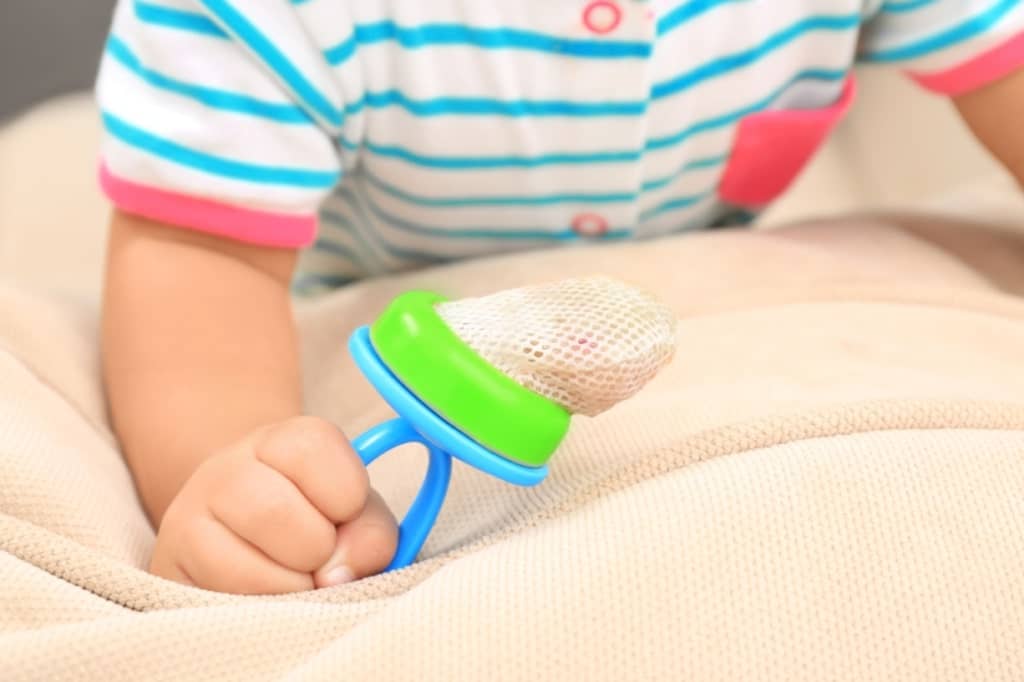Babies have special ways of communicating. From crying to fussing, and even staring at you with those cute eyes, the list is almost endless. In fact, for most babies, chewing their fingers or thumb is a part of the package.
Although this is really common in babies, most parents can find it disturbing if their little one just doesn’t stop chewing his/her fingers.

Is thumb sucking normal? Why does your baby chew his/her fingers? How can you deal with thumb sucking? In this article, you’d find answers to these questions and many more.
Table of Contents:
Is Finger Chewing Normal?
Yes, it is.
However, factors like age and the underlying reason your baby chews his or her fingers, determine the extent of normality. Nevertheless, thumb sucking is a normal, and expected, part of your child’s development.
Why Your Baby Chews His/Her Hands
Understanding why your baby is chewing his or her hands depends on how much you’re able to interpret your baby’s needs. For most new parents, this is often more difficult than it sounds.
To help you out, we’ve compiled a list of the major reasons why your baby chews his/her hands.
1. Hunger
Hunger is the most common reason your baby is feeding on his or her fingers.
Finger sucking is a natural instinct for your baby. This is because each time they’re fed, they either get a nipple or a bottle. In this period, their fingers are the closest object that gives them the same impression but they don’t yet understand that only the nipple or bottle holds milk!

When your baby feeds on his or her fingers, it may be a way of saying “Mom I’m hungry!”
Other cues babies give to show that they’re hungry include:
- Opening and closing their mouths
- Smacking their lips
2. Finding Sleep
For babies, finding sleep (especially during sleep training) may be more difficult than you think.
In fact, your baby may be trying to put himself or herself to sleep with a finger in the mouth. This is because most babies fall asleep while feeding and so have grown to associate sleep with having a nipple or bottle in the mouth.
When this is not available, they may look for another alternative which is most likely their hands.

3. Self-soothing
Sometimes, your baby may have his or her hands in the mouth due to stress or other stimulation such as noise, meeting new people, the weather, or anything that’s too overwhelming for him or her.
It would interest you to note that sucking provides a soothing and calming sensation that helps to remind your baby that he or she is fine. They may accompany this with yawning or turning their heads from left to right.
Also, if your baby does not spot you and has a struggle like a wet diaper or trying to pass a poo, finger sucking may be the first point of action to soothe himself or herself before crying starts.
4. Teething
What if it’s your older baby that is sucking on his or her finger?
In this case, teething may be to blame. Most babies begin teething between 4 and 7 months of life, therefore this doesn’t explain why a newborn chews his/her fingers.
The process of teething is usually painful and for your baby, sucking the fingers may be a means of soothing themselves. Rubbing their hands against their hurting gums helps them feel good.
Teething may also be accompanied by other symptoms such as drooling (which may cause a drool rash), frequent waking, and irritability.
5. Exploration
Here’s the funny one:
Your baby may not be hungry, teething, trying to find sleep, or soothing himself or herself. In some cases, finger chewing may just be a way of exploring this new world they’ve found themselves in.
Some babies may find chewing their fingers as a means of entertaining themselves and getting familiar with their environment. They’re just figuring out their senses and starting to learn that different things have different tastes, textures, and temperatures.
Furthermore, their sense of taste may be the only sense they depend on at this stage to differentiate things since sight and hearing have not fully developed at this stage for such functions.

6. Boredom
No toys around? No mom in view? No problem- the finger is the next best alternative.
If your baby does not find any other thing to do after the usual daily routine which includes eating, crying, sleeping, pooping, and there’s no one else around they can play with, their fingers may become the next best item to play with.
Do babies outgrow Finger Chewing?
Definitely!
Most babies outgrow finger chewing by around 6 to 7 months while some may persist till around 2 years. This is because as your baby grows, he or she finds new things to play with and also learns to communicate their needs with gestures and later on, verbally.
Eventually, there’s usually no need for him/her to chew on their fingers anymore.
How To Deal With Your Baby Chewing Their Fingers
Although finger chewing is normal and not harmful for babies, it is important to ensure that your baby’s hands are constantly clean. This would help reduce the risk of infections or stomach discomfort arising due to finger chewing.
If you can, try to get rid of the stimulus causing them to chew their fingers, especially in cases of hunger or wet diapers. Also, ensure that your baby is not in any form of pain or discomfort. If teething is the culprit, you may need to get a cold teething ring which helps to relieve the pain they may be having.

Finally, providing toys to play with as an alternative to finger chewing is also helpful. However, you need to make sure that the toys are always neat – it may be the next thing your baby is putting in his or her mouth. You also need to ensure that the environment around your baby is safe.
When To Get Worried
Thankfully, there’s almost no need to fret about finger chewing. In fact, there’s absolutely no need to worry except your child still chews the fingers after the age of four. At this age, you may want to consult your doctor to make inquiries about your child’s oral development.
References
Sherry A. Ellingson, Raymond G. Miltenberger, Jason M. Stricker, Matthew A. Garlinghouse, Jennifer Roberts, Tami L. Galensky and John T. Rapp (2000). Analysis and treatment of finger sucking. Journal of Applied Behavior Analysis 33(1):41-52. Accessed on 13th November, 2021 from https://www.researchgate.net/publication/12577235_Analysis_and_treatment_of_finger_sucking
Staufert Gutierrez D and Carugno P. (2021). Thumb Sucking. StatPearls [Internet]. Accessed on 13th November, 2021 from https://www.ncbi.nlm.nih.gov/books/NBK556112/#_NBK556112_pubdet_

